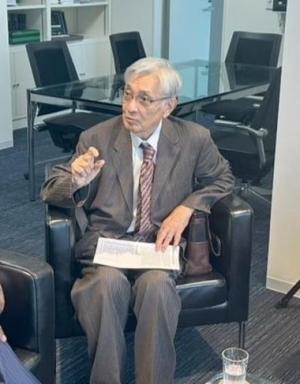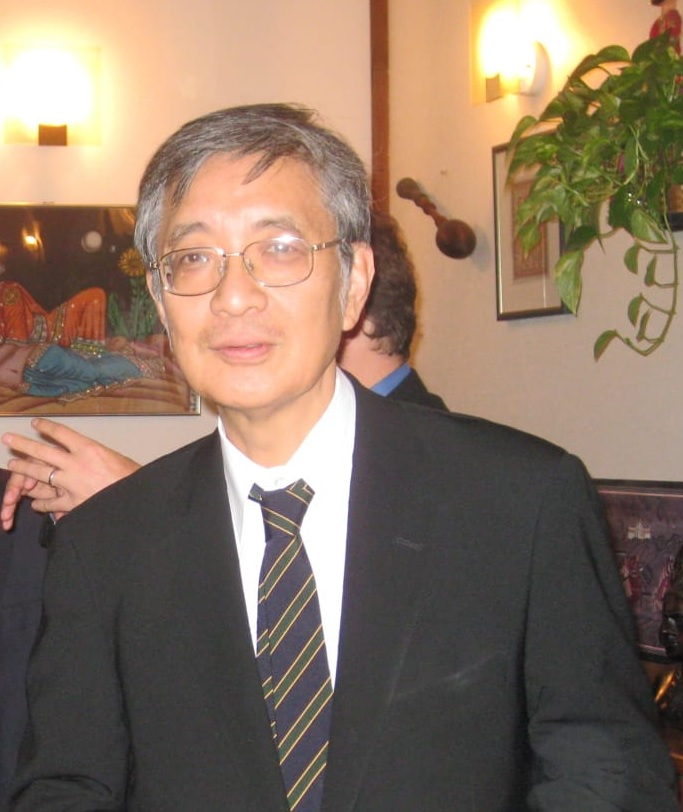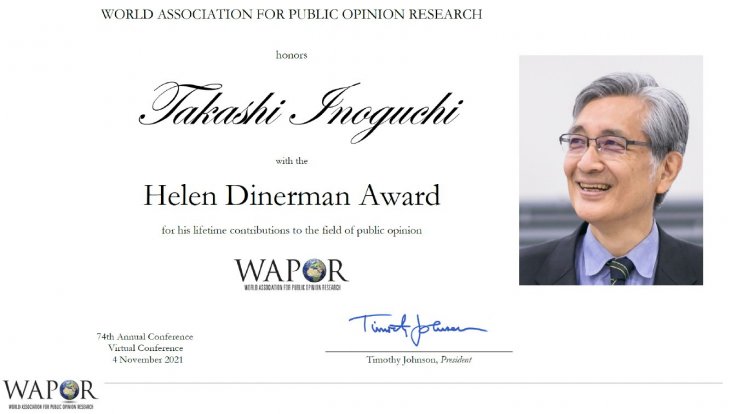
Professor Emeritus Takashi Inoguchi of the University of Tokyo (80), and his daughter (33) were found dead in the fire, confirmed the Metropolitan Police Department of Tokyo, Japan.
Prof. Takashi Inoguchi, was a globally-known political scientist whose 50 years of academic career spanned over several institutions from Sophia University to the University of Tokyo, the United Nations University and Niigata University in Japan.
Born in Niigata Prefecture in 1944, Inoguchi went on to study at the University of Tokyo and the Massachusetts Institute of Technology, where he earned his doctorate. After serving as an assistant professor at Sophia University, he went on to serve as a professor at the University of Tokyo and president of the Japan Association of International Relations. He also served as president of Niigata Prefectural University, which opened in 2009.
Professor Inoguchi has written many books on international relations, including "A View of Global Changes," and in 1982 his book "The Structure of International Politics and Economics" won the Suntory Prize for Social Sciences and Humanities. Following his Ph.D., he taught at Sophia University from 1974 to 1977, where he met his future wife and academic Kuniko Yokota, now a member of the Diet.
Professor Inoguchi was also at the University of Geneva from 1977 to 1978, and at Harvard University from 1983 to 1984. He also served as Senior Vice Rector with the rank of Assistant Secretary General at the United Nations University from 1995 to 1997. He later served as the president of the University of Niigata Prefecture, and remained a professor emeritus at the University of Tokyo.

A well-known author of several research books in Political science and International Relations, Prof. Inoguchi (80) had been a key commentator on global politics throughout his academic career and mentored many research graduates across the globe spanning from Southeast Asia, India, the US and UK, to list a few.
Critical Evaluation of 'Clash of Civilizations'
"Depending on where you stand, the political scenario changes," is one of his famous perspective shared by his students, scholars and fellow academics across Asia. In fact, Prof. Inoguchi's scholarship was characterized by a critical re-evaluation of dominant political theories from an Asian vantage point.
His critical work on Samuel P. Huntington's "Clash of Civilizations" thesis offers, instead, a more nuanced understanding of cultural and political interactions in Asia. He argued for cooperation over conflict, interdependency over independent or isolated markets, demonstrating how shared histories could pave the way for peaceful coexistence among civilizations.
Inoguchi's later work reflected his incisive critique of Japan's role in global politics. He lamented Japan's transition from a major global player to what he described as a "minor nation" in the international hierarchy. This perspective challenged policymakers and academics alike to rethink Japan's foreign policy strategies in a rapidly shifting geopolitical landscape especially during the post-Cold War period.

A prolific author, Professor Inoguchi wrote extensively on the interplay of power, culture, and diplomacy. His works not only analyzed global trends but also foregrounded Asian contributions to the intellectual and practical dimensions of international relations. His views on multipolar world overtaking bipolar Cold War in the 1990s encapsulated his belief in the plurality of political truths and the importance of diverse perspectives.
He was also the founding editor of several academic journals, such as the Japanese Journal of Political Science and International Relations of the Asia-Pacific. He directed the AsiaBarometer Survey since 2002, which examines societal values and quality of life across 32 Asian countries.
For his extensive contributions to research and academia, he has received several prestigious awards, including the Order of the Sacred Treasure from Japan in 2023, which honors his contributions to education and public service.
Beyond his numerous academic contributions, Professor Inoguchi was a mentor to countless students and scholars from across Asia, the United States, and Europe. His influence extended far beyond lecture halls, inspiring generations to approach global challenges with intellectual rigor and empathy.
His passing leaves a void in the field of political science, but his ideas will continue to resonate in the corridors of academia and policymaking. As Japan and the world navigate uncertain futures, Professor Inoguchi's work remains a guidepost for understanding the complex interplay of global forces through an inclusive and cooperative lens.









